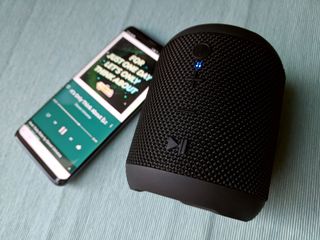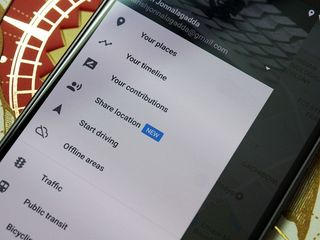Bluetooth isn't 'bad' as long as you use it correctly

An article at Mashable, incisively called "Bluetooth is bad and you should stop using it," caught my eye because I just had to see why someone would say it — and if it matched up with my reasons that Bluetooth is (can be, anyway) bad. It does. It goes to explain how Bluetooth is vulnerable to about a gazillion things that hackers can do to grab data, or mess with equipment that is using a Bluetooth connection — or, more frighteningly, just has Bluetooth enabled. In short, the article does a great job of explaining why Bluetooth can be bad news and why you shouldn't use it.
Here's the rub, though:it's not that Bluetooth is so bad that you shouldn't use it. That's probably not possible these days, what with headphone jacks disappearing and more devices using the protocol than ever before. It's more that you should turn off Bluetooth whenever you're not using it, just to be safe.
Here's why.
Hackers aren't everywhere

I'm paranoid about some things, and wireless security is one of them. I think that we will soon see a spectacular and devastating hack that affects millions of phones, so I like to do what I can to try be sure mine isn't one of them. Keeping software up to date, not installing applications I don't trust, and even sacrificing some convenience for security, are all things I try to do whenever I can. I do these things to try and protect myself, but I also recognize that hackers probably aren't sitting at the bar with hidden laptops creating man-in-the-middle attacks for Wi-Fi and Bluetooth enabled devices.
Real life isn't Hollywood and there probably isn't a hacker hiding in the coffee shop ready to steal your data.
Hackers exist, and probably have sat at a bar and tried to grab passwords and usernames using sophisticated network hijacking schemes. But more often than not the bar or Starbucks or anywhere else you'll find a lot of people with their phones out doesn't have someone with the knowhow and the equipment to steal all your data over Bluetooth. Mashable gives us some good advice here — if you're at something like the Blackhat Security Conference you should not use Bluetooth. Out in the rest of the world, though, you're probably never going to run into that person who wants to hack your phone.
Location tracking is a problem

Something the original article barely touches on is what I think is the best reason to not trust your Bluetooth connection — tracking beacons.
These are small network devices that try to use your Bluetooth connection to track your movements. You'll find them in places like shopping malls, big box stores, Disney World, parking garages and anyplace else that someone can get enough data to sell it and turn a buck. That's what some companies do — use this aggregated Bluetooth data to show how many people are in a place at a certain time.
Be an expert in 5 minutes
Get the latest news from Android Central, your trusted companion in the world of Android
It's easy to track you using Bluetooth beacons, but only if you have Bluetooth turned on.
Where things can turn ugly is when a beacon can work with other tools like an app or a Wi-Fi hotspot to harvest data that can identify you. I don't mean your actual identity, I mean identify your phone and single it out. If that can be done, when and where you move can easily be tracked. Match identifying features from your phone with the same data collected in different locations and it's like a real-time map of where you've been. Legitimate uses for this could be to show you specific information in an app or to try and target you with location-based ads. But this data can also be sold off or built into a larger database that can track you across different places; your phone has the same identifying features at Wal-mart as it does at the airport.
The way all this works means you don't have to do a thing for it to happen to you. It's automatic, can be intrusive, and thankfully is easy to prevent.
Shut it all down

Keeping yourself safe from both Bluetooth hackers and companies that want to track where and how you move is fairly easy. Shut down any wireless services that you won't be using.
That means going into the settings and disabling Bluetooth and Wi-Fi when you're out and about and not actively using them. Bluetooth is fine when you have a set of headphones paired during your daily run or while waiting for the bus. When you're done listening and shut the headset off, do the same with the Bluetooth radio inside your phone. The same goes for Wi-Fi — if you're not using a Wi-Fi connection it's easy to shut Wi-Fi off until you are.
You're never going to be able to stop a "real" hacker who is determined to grab your data. You can make it harder for them — and mind your privacy a bit by keeping location trackers at bay — by taking a few seconds to shut the back door.

Jerry is an amateur woodworker and struggling shade tree mechanic. There's nothing he can't take apart, but many things he can't reassemble. You'll find him writing and speaking his loud opinion on Android Central and occasionally on Twitter.
